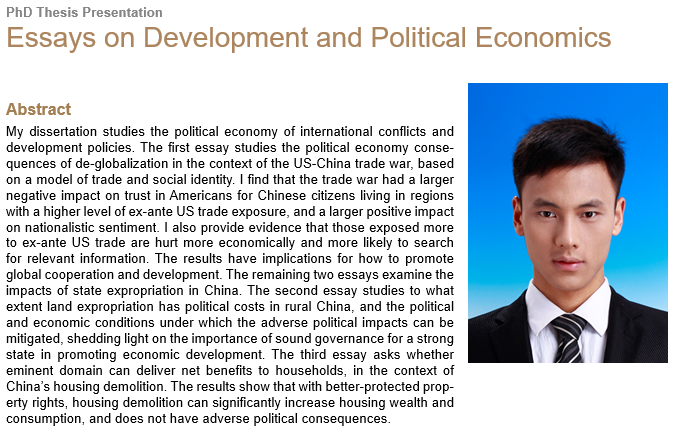Abstract
My dissertation studies the political economy of international conflicts and development policies. The first essay studies the political economy consequences of de-globalization in the context of the US-China trade war, based on a model of trade and social identity. I find that the trade war had a larger negative impact on trust in Americans for Chinese citizens living in regions with a higher level of ex-ante US trade exposure, and a larger positive impact on nationalistic sentiment. I also provide evidence that those exposed more to ex-ante US trade are hurt more economically and more likely to search for relevant information. The results have implications for how to promote global cooperation and development. The remaining two essays examine the impacts of state expropriation in China. The second essay studies to what extent land expropriation has political costs in rural China, and the political and economic conditions under which the adverse political impacts can be mitigated, shedding light on the importance of sound governance for a strong state in promoting economic development. The third essay asks whether eminent domain can deliver net benefits to households, in the context of China’s housing demolition. The results show that with better-protected property rights, housing demolition can significantly increase housing wealth and consumption, and does not have adverse political consequences.

